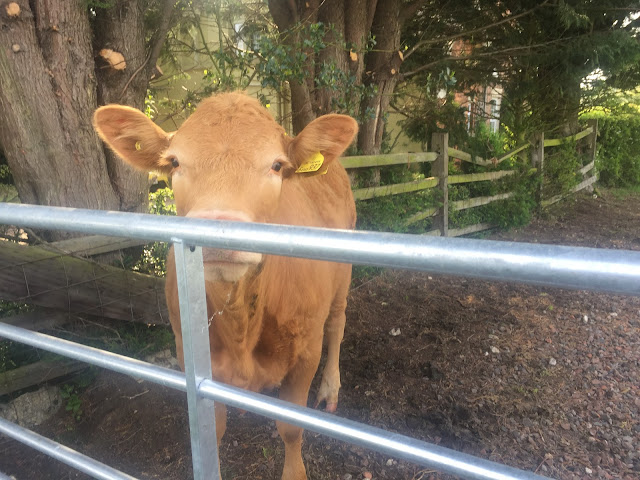Young Master William came into this world just one week ago. His journey was a traumatic one, but mother and son are both doing really well and are now back home. Home is Shanghai, for now.
They may be many thousands of miles away but thanks to modern technology we are able to keep in close contact and have lots of photographs of him. He has a wonderful head of jet black hair and weighed in at over 8lbs, a very handsome young man.
When his father, my youngest child, was born things were very different. Telephone calls were very expensive and quite difficult to arrange to Saudi Arabia, which is where my husband was working at the time. We had one short call once a week, if available. Jonathan was several days old before my husband knew he had been born and six weeks old before he came home and saw him. Thank goodness things are different now.
Talking of young men, Winston is also thriving and has certainly brought a new energy to this place. It would be true to say that my husband is as fond of him as I am, and that certainly couldn't be said of my other dogs. I think he has finally got the puppy he didn't know he had always wanted.
I am in slight panic mode, the village show is on Saturday. So far all I have prepared is a fruit loaf. Time, and Winston, permitting I will bake a loaf of bread, a Victoria Sandwich and a couple of batches of scones so they can go into the auction later to raise funds for the village hall.
As I type this Winston is fast asleep in a corner by the door, he is a restless sleeper and migrates from bed, to dog chair, to floor, all the time staying virtually asleep, then snoring deeply immediately he has found his new position. At night he sleeps in his crate and is perfectly happy to do so, which is just as well given the restless nature of his daytime naps.


.JPG)











.png)
.png)











.png)






















